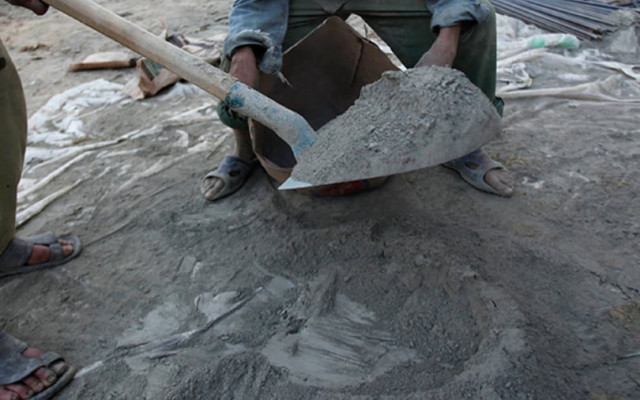DG Khan Cement’s profit plunges 79%
Board announces cash dividend of Re1 per share

Representational image. PHOTO: REUTERS
Earnings had been recorded at Rs8.94 billion in the previous year, according to a notice sent to the Pakistan Stock Exchange (PSX).
The board of directors announced cash dividend of 10% or Re1 per share. Earnings per share of the company stood at Rs4.16 in FY19 compared to Rs20.25 in the previous year.
The company’s gross profit dipped 35.6% to Rs5.67 billion despite growth in sales. DG Khan Cement’s gross margins dropped mainly due to a hike in power tariffs by the National Electric Power Regulatory Authority (Nepra) and peaking inflation levels.
“The benefit of tumbling coal prices was offset by the devaluating rupee. Another reason for the increased costs was the added burden from a new production line,” stated Shajar Research in its report.
On the other hand, finance cost jumped significantly from Rs574.6 million to Rs3.61 billion in the period under review as the company was in an expansionary phase amid a high interest rate environment.
Share price of the company decreased Rs0.68 or 1.42% to Rs47.13 with trading in 6.7 million shares at the PSX. At close on Monday, the benchmark KSE 100-share Index recorded an increase of 447.24 points, or 1.42%, to settle at 31,928.55 points.
“The highly leveraged position of the company proved rather disadvantageous since the finance cost increased almost six times in FY19,” the report added.
Meanwhile, Topline Securities’ analyst Karim Punjani was of the view that tax was the major factor responsible for dragging down the company’s earnings as DG Khan Cement booked tax payment of Rs604 million (turnover tax and 65B benefit reversal) as compared to the effective tax rate of 21%.
Apart from the result, the company also notified that it had raised its investment in Hyundai Nishat Motors to Rs1.05 billion and renewed a Rs1-billion loan to Nishat Hotels at one-month Kibor plus 100bps for a period of one year.
“We flag price weakening, lower-than-anticipated local demand, unanticipated increase in gas and coal prices, and delay in its upcoming ventures as key risks for the company,” he added.
Published in The Express Tribune, September 17th, 2019.
Like Business on Facebook, follow @TribuneBiz on Twitter to stay informed and join in the conversation.



















COMMENTS
Comments are moderated and generally will be posted if they are on-topic and not abusive.
For more information, please see our Comments FAQ